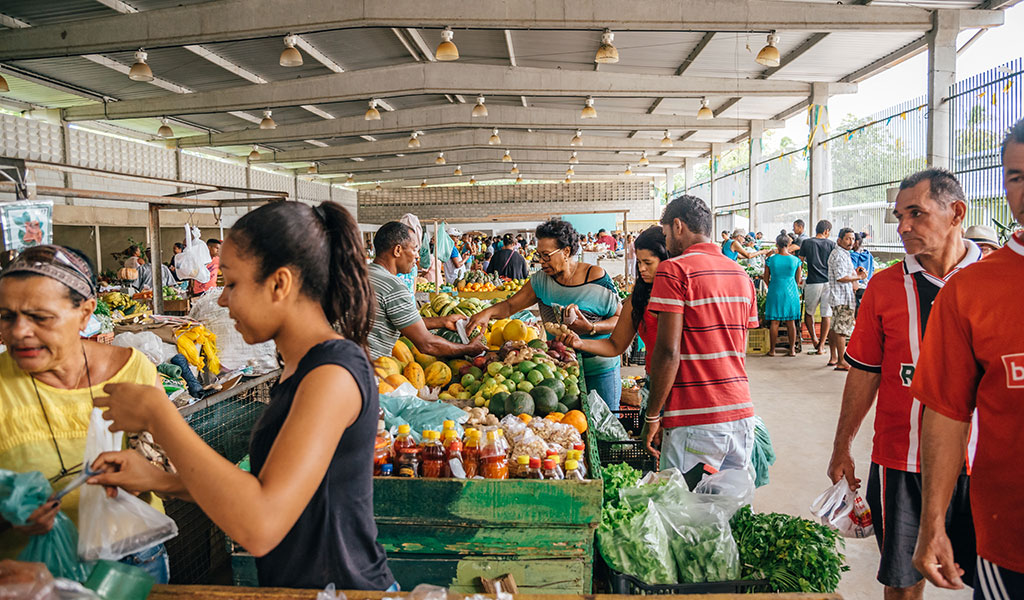(Version in Français. Listen to the podcast in English or Français.)
Governments in Africa have a prime objective—to reduce poverty. To improve living standards and create jobs, they need to provide their citizens with better health care, better education, more infrastructure. They need to build hospitals, schools, and to pay doctors, nurses, teachers.
All this costs money. How to pay for this—in a way that is both fair and efficient—is a question that all governments face.
There are limits to how much a government can receive as grants from donors or borrow from donors or the private sector. So raising tax revenues is a necessary element for governments to spend on providing more of these essential services and, in turn, reduce poverty.
Building on progress
While African countries have made important strides in boosting revenue collection in recent years—from around 11½ percent of gross domestic product (GDP) in 1995 to 15 percent in 2009—they continue to lag behind most other regions.
Yet African countries that have had successes on this front demonstrate clearly the importance of stronger revenue performance for making in-roads into poverty reduction.
- Take Mozambique, for example. An impressive near doubling of tax revenues relative to the overall economy since 1992 has allowed substantial increases in social spending with tangible rewards—in increases in enrollment in primary education, better vaccination, and better basic water and sanitation infrastructure.
- In Liberia, revenues increased from only 6 percent in GDP to 2003 to 20 percent in 2009, even after a very difficult history of civil war. In addition to significantly better primary enrollment rates, numbers of teachers, and child and the maternal mortality, spending for infrastructure has increased.
To help capitalize on country successes such as these, a conference on Revenue Mobilization in Sub-Saharan Africa is being co-hosted by the IMF and Kenyan government in Nairobi on March 21-22.
The primary goal is to provide African policymakers with an opportunity to learn from each other, and to identify lessons on what has and has not worked in their efforts to mobilize revenues.
Priority issues
There are, of course, a wide range of issues for countries to contend with in improving tax revenues, but to help frame the discussion, we see the following as some priority areas for action.
First and foremost, countries should avoid taxes that hamper economic development or job creation. Instead they should be designed to be pro-development and pro-jobs.
There are two pieces to this puzzle: improving revenue administration; and better tax policy.
1. Revenue administration reforms should concentrate on reducing corruption and addressing the problem of what we call non-compliance. That’s when people just don’t pay their taxes. As much as half of the tax base is lost because taxpayers escape taxation.
2. Tax policy reforms can be incredibly wide-ranging, but here are five issues to look at:
- First, eliminating tax exemptions. In African countries these are often quite substantial and can rob the government of quite a bit of revenue, and inevitably they favor some people, which isn’t fair. There are also better ways to protect the poor on the spending side, through well-targeted safety nets.
- Second, making value added taxes (VATs), which many countries have, less complicated through fewer tax rates, fewer exemptions, and a reasonable threshold that keeps small taxpayers out of the VAT system and assures equity across individuals.
- Third, countries need to find ways of compensating for the loss of revenues resulting from trade liberalization, including trade revenues within customs unions such as in the East African Community where our conference is taking place.
- It’s also important to adopt clear laws and regulations that include strong taxpayer protection against harassment from tax officials. Again, this ensures that taxes are administered equitably.
- Finally, many African countries need to ensure that governments get a fair share when negotiating deals on exploitation of their natural resources, like oil, natural gas, and minerals.
Ongoing Assistance
The IMF has a long history of providing technical assistance in tax policy and revenue administration in Africa and throughout the world. We will continue to offer assistance to countries in the region, benefiting from the lessons to be drawn in Nairobi.
We aim to provide technical assistance that is close to our customers, the governments of the region, through our regional Technical Assistance Centers—what we call our AfriTACs. We have three located in Africa and two more will open soon.
This Nairobi event coincides with the launch of two Topical Trust Funds created specifically to support the delivery of IMF technical assistance in tax matters: one in the area of tax policy and revenue administration, the other for the management of natural resources.
Our discussions in Nairobi will inform a global conference on resource mobilization to be held on April 17–19, 2011 in Washington, DC, and responds to an ongoing initiative by Group of Twenty industrialized and emerging market economies on enhancing revenue mobilization in developing countries.





